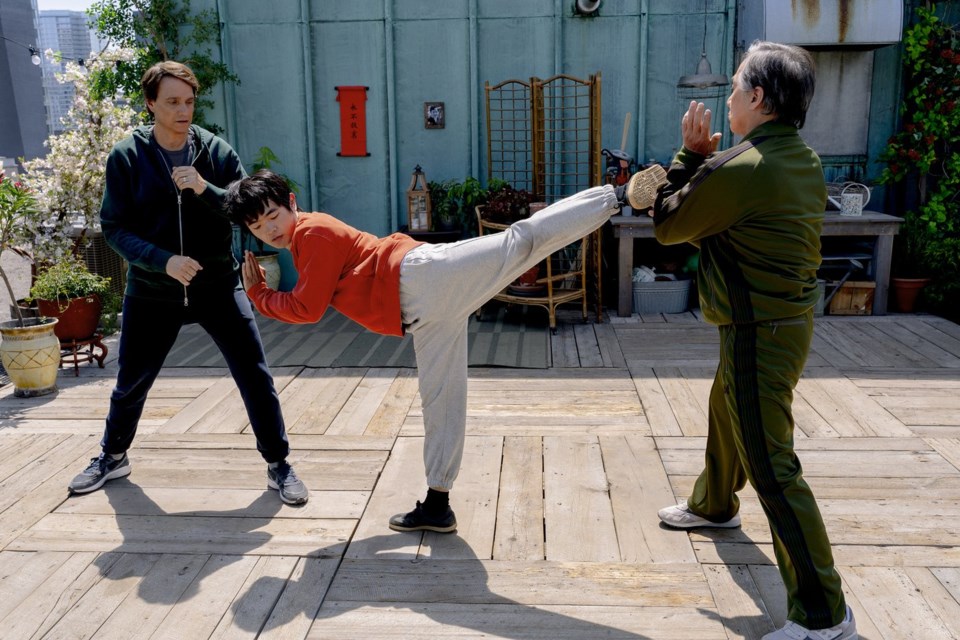Mr. Miyagi was known for waxing poetic. So the fact that “Karate Kid: Legends” has nothing to say is all the more disappointing.
One of the most interesting aspects of the original “The Karate Kid” and its early sequels is Mr. Miyagi’s radical proclivity for mercy, often mistaken for cowardice by those around him. He doesn’t just teach Daniel (Ralph Macchio) how to fight. He teaches him a subversive way of living, and, in doing so, becomes a kind of father figure to the fatherless boy.
As is often the case, it seems the spirit of the franchise was lost somewhere in the creation of an entire universe — including six films and six seasons of “Cobra Kai.” Although “Karate Kid: Legends” does eventually allude to this philosophy of compassion, it lacks both the heart and grit of those earlier films. It’s neither entertaining, nor thought-provoking, which makes one wonder whether this was solely a means of capitalizing on the renewed audience the franchise boasts thanks to “Cobra Kai.”
In some ways, the film follows the playbook of its predecessors. Li Fong (Ben Wang) moves to New York from Beijing with his mother and deals with the clashing of cultures and the struggles of being an outsider. And while Li does eventually, like in previous films, fight the jealous ex-boyfriend of his new romantic interest, their rivalry is hardly the focal point of the story.
Instead, Li’s main struggle is internal, as he deals with the grief of witnessing his brother get fatally stabbed by a disgruntled opponent after a kung fu match back home. But even that internal struggle is buried under other subplots and is hardly dealt with in the end.
You might be wondering how Macchio and Jackie Chan fit into this story. They are, after all, on the movie poster. But neither is meaningfully in the film until about an hour into it, when they decide they need to help Li prepare for his karate match. Chan starred as a kung fu master in the 2010 remake, and the impressively choreographed fight scenes in this movie are more akin to his previous film — the convergence between Macchio's karate and Chan's kung fu is never really fleshed out.
“Karate Kid: Legends” is the first project in the franchise to connect Chan and Macchio, and does so in a way that feels forced. Once Chan and Macchio are finally on screen, there are a few endearing moments between the pair. But not enough to save the film. The attempt to tell a different story, while laudable, turns the film into a convoluted one, with no real character development or stakes.
Part of the problem is that the movie takes itself so seriously, making some of the irreverent humor of “Cobra Kai” unattainable. (One of the best moments of the film is William Zabka’s cameo as Johnny Lawrence in a light-hearted coda.) For the most part, the film struggles tonally, thanks in part to the upbeat music set against a backdrop of violence and trauma.
That’s not to say the previous films haven’t always suffered from trying to do too many things. But there were moments of poignancy in the earlier movies that are absent in this latest installment of the franchise.
Despite its sprawling universe, there's no need to have kept up with it to understand most of what's going on. But rewatching the first wouldn't hurt, even if it will make you nostalgic for what's missing in “Karate Kid: Legends.”
“Karate Kid: Legends,” a Sony Pictures release, is rated PG-13 by the Motion Picture Association for martial arts violence and some language. Running time: 94 minutes. One and a half stars out of four.
Krysta Fauria, The Associated Press



